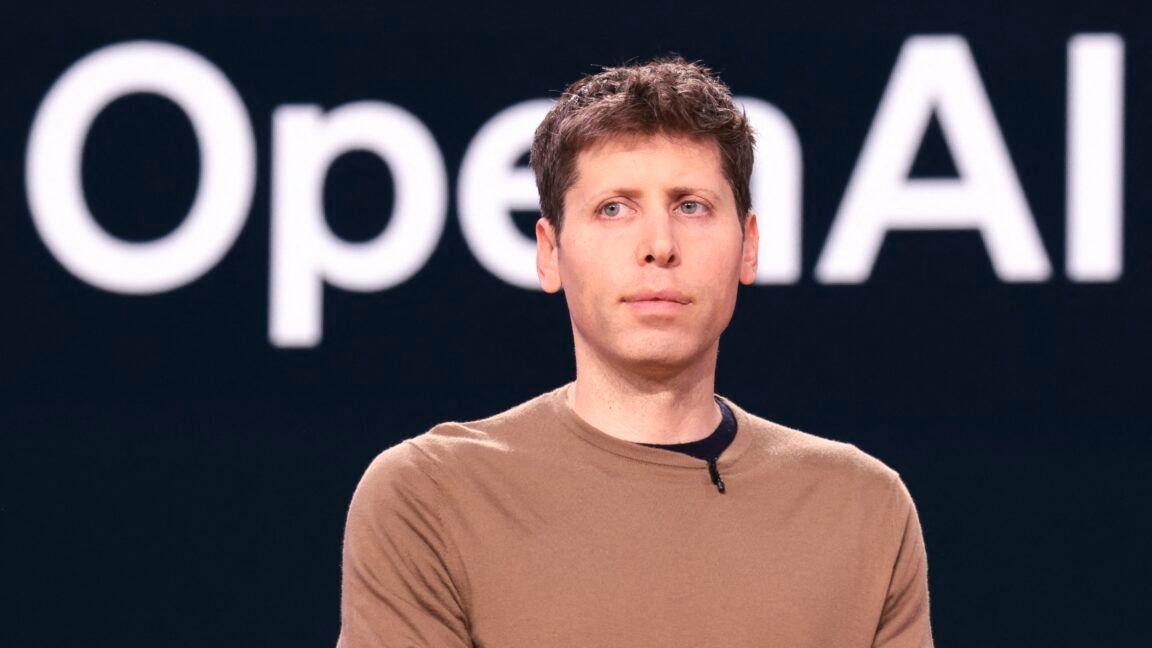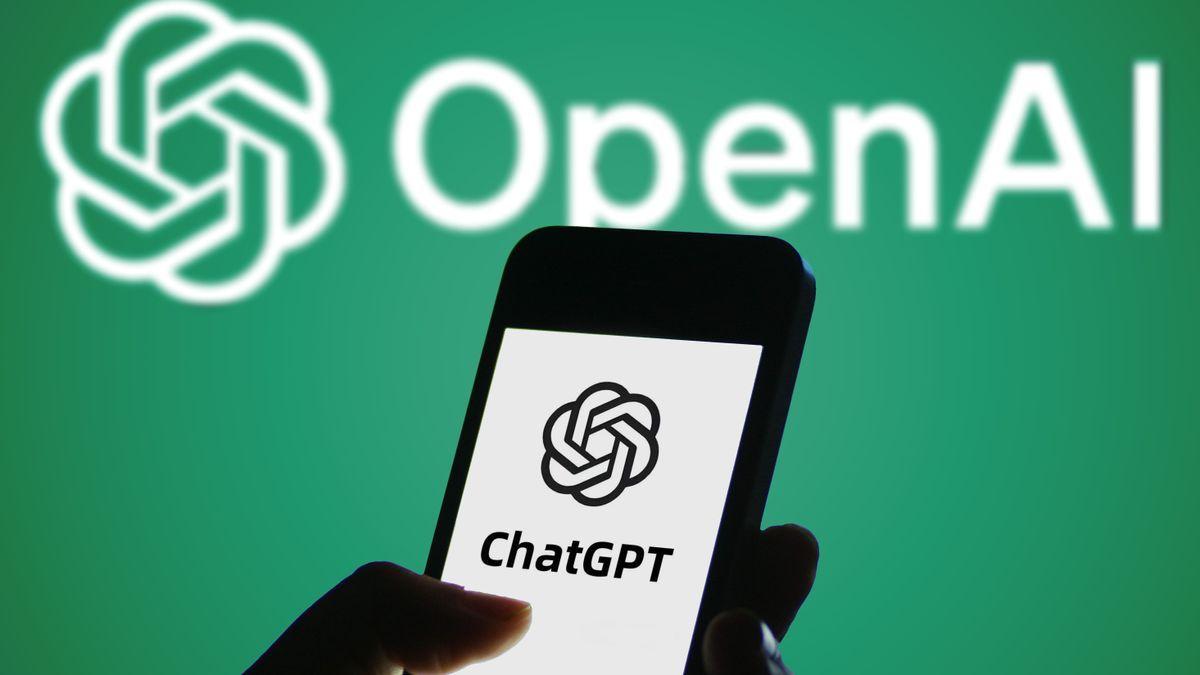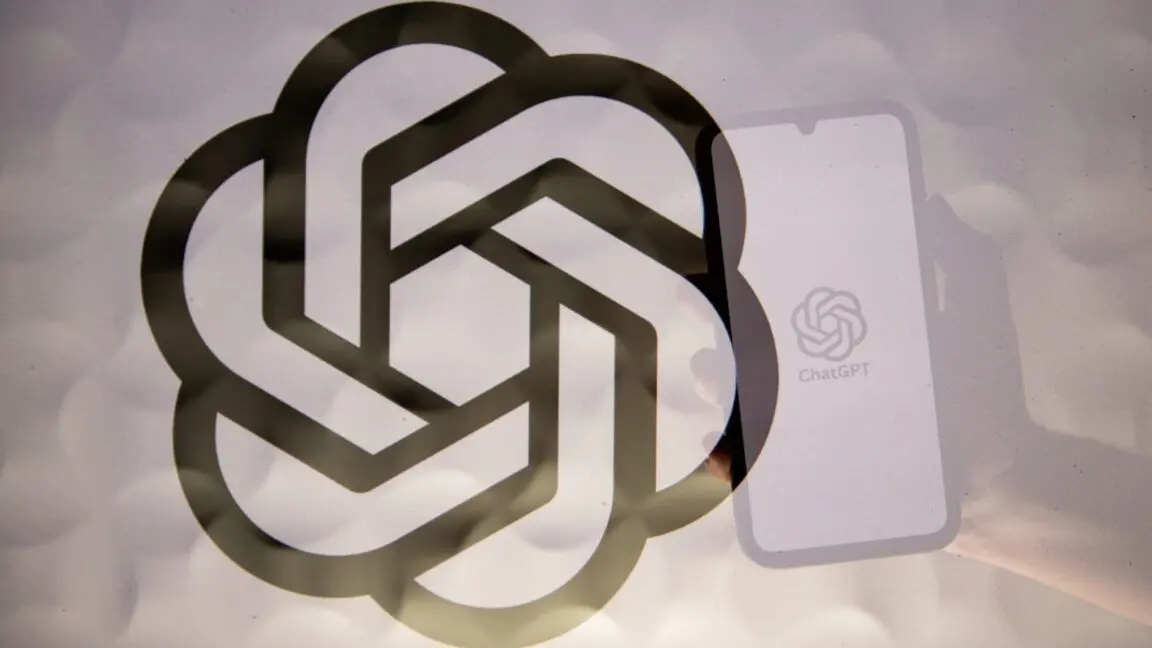OpenAI Launches ChatGPT Gov: Tailored AI for U.S. Government Agencies
5 Sources
5 Sources
[1]
OpenAI tailored ChatGPT Gov for government use - here's what that means
ChatGPT will be making its way to federal, state, and local agencies. The new version comes with benefits - and concerns. ChatGPT excels as a workplace assistant: The AI chatbot makes robust documents searchable, automates complex tasks, assists with writing and coding, and more. As a result, the US government should, in theory, be one of generative AI's biggest beneficiaries -- and OpenAI thinks so, too. On Tuesday, OpenAI unveiled ChatGPT Gov, which, as the name implies, is a version of ChatGPT tailored to the specific requirements of federal agencies. ChatGPT Gov provides ChatGPT's advanced assistance while upholding the government's security and privacy protocols. In the blog post announcing the product, OpenAI noted the "enormous potential" for its AI tools to help the public sector address complex issues such as improving public health and strengthening national security, with the ultimate goal of "serving national interest and public good." The capabilities to be offered as part of ChatGPT Gov are similar to those offered in ChatGPT Enterprise, including the ability to collaborate with others within their government workspace, upload text and image files, access GPT-4o, create custom GPTs, and access an administrative console for CIOs and IT teams to manage usage. Also: What to know about DeepSeek AI, from cost claims to data privacy According to OpenAI, many government agencies already have been leveraging ChatGPT for their everyday workflows; to date, more than 90,000 users across more than 3,500 US federal, state, and local government agencies have sent more than 18 million ChatGPT messages. To maximize security and control, government agencies can use Microsoft Azure's OpenAI Service to deploy ChatGPT Gov within their environments, including Microsoft Azure commercial cloud or Azure Government. This method allows agencies to "more easily manage their own security, privacy, and compliance requirements, such as stringent cybersecurity frameworks (IL5, CJIS, ITAR, FedRAMP High)," according to OpenAI. Another benefit, according to the company, is that ChatGPT Gov can make the process of getting internal authorization of non-public sensitive data for processing by OpenAI's models faster and more seamless. ChatGPT Gov usage will also be subject to OpenAI's usage policies, which ban harmful use and establish safeguards for using the chatbot. While OpenAI did not share details about timeline rollout or pricing, it did encourage interested parties to contact their sales team. Naturally, one concern regarding the use of OpenAI in government functions was users' data privacy, as reflected in comments to OpenAI CPO Kevin Weil's X post when launching the service. X user @tanvitabs shared: "It's concerning that official public data is being given to AI without explicit permission from the individuals involved. This raises significant privacy issues as you move towards integrating AI in government operations." Also: I put GitHub Copilot's AI to the test - and it just might be terrible at writing code Weil responded to the comment by reiterating that the product is self-hosted in the user's cloud environment, which already has been accredited, and the Azure OpenAI API will offer features such as Zero Data Retention (ZDR) in classified environments.
[2]
OpenAI launches ChatGPT Gov to accelerate government adoption of AI - SiliconANGLE
OpenAI launches ChatGPT Gov to accelerate government adoption of AI OpenAI is trying to cozy up further with the U.S. government through the launch of "ChatGPT Gov," a special version of its iconic chatbot that's geared to federal agencies. The company said ChatGPT Gov will give government workers a more secure way to access its technology that meets the highest internal security standards. In a blog post, it said it has high hopes for the adoption of artificial intelligence in the public sector, believing that it will boost the efficiency and productivity of agencies. "[it is] crucial for maintaining and enhancing America's global leadership in this technology," OpenAI said in a statement. In addition, the company says that by partnering with the U.S. government, it can help to ensure that policymakers better understand the technology. ChatGPT Gov differs from the standard ChatGPT service because it allows government agencies to use the company's large language models within their own secure hosting environment. Customers can choose an environment within Microsoft Azure's commercial cloud platform, or alternatively set it up in a more secure Azure Government cloud tenant. The advantage of this is that government agencies will have better control over security and privacy, which will make it easier for them to adhere to strict compliance requirements, OpenAI said. It also means ChatGPT Gov can handle sensitive, non-public data, the company said. Government workers won't notice any real differences between ChatGPT Gov and the regular chatbot, as it comes with most of the same features and capabilities found in ChatGPT Enterprise. For instance, users will be able to save and share their chats within a private workspace, upload text and image files. And there's an administrative console for admins to manage users, groups and access features like single sign-on. Like ChatGPT Enterprise, ChatGPT Gov allows users to access the company's most advanced large language model, GPT-4o, which specializes in tasks such as summarization, text interpretation, coding, mathematics and image recognition. In a demonstration, the company showcased ChatGPT Gov's vision capabilities, showing how a user can take a photo of a document and upload it to the model in order to summarize its contents. It can also translate documents into multiple languages, and it can do the same for handwritten notes. According to OpenAI, the launch of ChatGPT Gov aligns with new U.S. President Donald Trump's recent statement about the need for the country to maintain its global leadership in AI development. By giving government workers access to cutting-edge AI technology, it can help to maintain its competitive advantage, the company believes. There's reason to think that ChatGPT Gov will be popular, as the standard version of the chatbot already has more than 90,000 users across over 3,500 federal, state and local government agencies. Those users have sent a combined 19 million messages to ChatGPT in support of their day-to-day work, the company said. Early adopters of ChatGPT Gov include the Air Force Research Laboratory, Los Alamos National Laboratory, the State of Minnesota's Enterprise Translations Office and the U.S. Agency for International Development.
[3]
OpenAI launches ChatGPT plan for U.S. government agencies
In a week dominated by headlines about China's growing AI competitiveness, OpenAI has launched ChatGPT Gov. The new version of the AI-powered chatbot platform is designed to provide U.S. government agencies an additional way to access the tech. ChatGPT Gov includes many of the capabilities found in OpenAI's corporate-focused tier, ChatGPT Enterprise. Using the platform, agencies can deploy certain OpenAI models on Microsoft Azure commercial or government clouds. OpenAI says that ChatGPT Gov enables agencies to more easily manage their own security, privacy, and compliance, and could expedite internal authorization of OpenAI's tools for the handling of non-public sensitive data. OpenAI claims that, since 2024, more than 90,000 users across more than 3,500 U.S. federal, state, and local government agencies have sent over 18 million messages on ChatGPT to support their day-to-day work.
[4]
OpenAI launches ChatGPT Gov: What is it and how can it help govt agencies
Since 2024, over 90,000 users from 3,500+ federal, state, and local agencies have exchanged more than 18 million messages on ChatGPT. OpenAI has introduced ChatGPT Gov, a special version of ChatGPT designed for US government agencies. ChatGPT Gov aims to help agencies improve efficiency, productivity, and decision-making while maintaining high security and compliance standards. Keep reading to know more about OpenAI's ChatGPT Gov. ChatGPT Gov is a tailored version of ChatGPT that allows government agencies to use OpenAI's advanced AI models, including GPT-4o, in a secure environment. Agencies can deploy it on Microsoft Azure's commercial or government cloud, ensuring compliance with strict cybersecurity standards like IL5, CJIS, ITAR, and FedRAMP High. Also read: News publishers in India accuse OpenAI of scraping copyrighted content ChatGPT Gov includes many of the same features as ChatGPT Enterprise, such as: Since 2024, over 90,000 users from 3,500+ federal, state, and local agencies have exchanged more than 18 million messages on ChatGPT, according to OpenAI. Also read: Accident or cover-up? OpenAI allegedly deletes potential evidence in copyright case "ChatGPT Gov reflects our commitment to helping U.S. government agencies leverage OpenAI's technology today. We continue to work toward FedRAMP Moderate and High accreditations for our fully managed SaaS product, ChatGPT Enterprise," the company said. "We look forward to collaborating with government agencies to enhance service delivery to the American people through AI and to foster public trust in this critical technology," it added. Also read: ANI sues OpenAI over using its content for training ChatGPT models
[5]
Chatbots are going to Washington with ChatGPT Gov
In an X post Monday commenting on DeepSeek's sudden success, OpenAI CEO Sam Altman promised to "pull up some releases" and it appears he has done so. OpenAI unveiled its newest product on Tuesday, a "tailored version of ChatGPT designed to provide U.S. government agencies with an additional way to access OpenAI's frontier models," per the announcement post. ChatGPT Gov will reportedly offer even tighter data security measures than ChatGPT Enterprise, but how will it handle the hallucinations that plague the company's other models? According to OpenAI, more than 90,000 federal, state, and local government employees across 3,500 agencies have queried ChatGPT more than 18 million times since the start of 2024. The new platform will enable government agencies to enter "non-public, sensitive information" into ChatGPT while it runs within their secure hosting environments -- specifically, the Microsoft Azure commercial cloud or Azure Government community cloud -- and cybersecurity frameworks like IL5 or CJIS. This enables each agency to "manage their own security, privacy and compliance requirements," Felipe Millon, Government Sales lead at OpenAI told reporters on the press call Tuesday. Recommended Videos deepseek's r1 is an impressive model, particularly around what they're able to deliver for the price. we will obviously deliver much better models and also it's legit invigorating to have a new competitor! we will pull up some releases. — Sam Altman (@sama) January 28, 2025 The company also provided a demonstration of what ChatGPT Gov, which runs atop the GPT-4o model, can do during the press call. In the demo, a "federal employee" signed into ChatGPT, generated a five-week plan for their job duties and then analyzed a printed version of the same 5-week plan marked up with hand-labeled notes and addenda. ChatGPT then drafted a memo to the agency's legal and compliance department summarizing its plan. "I know President Trump is also looking at how we can potentially streamline that, because it's one way of getting more modern software tooling into the government and helping the government run more efficiently," OpenAI CPO Kevin Weil told CNBC. "So we're very excited about that." ChatGPT Gov is built largely upon the existing ChatGPT Enterprise framework, which is still going through the Federal Risk and Authorization Management Program and has not yet been cleared to handle non-public data. There is no timeline yet for when that accreditation might come through but the AI likely won't be rolled out to actual agency employees before that happens. Even with the focus on data and operational security, relying on generative AI for such vital and sensitive tasks as the functioning of government poses unique and difficult challenges. We've already seen more than one lawyer get caught using chatbots to "perform research," resulting in them citing hallucinated case law, as well as police rely on faulty AI-based evidence to wrongfully arrest people. California voters also recently rejected a measure that would have put AI in charge of bail sentencing. What's more, a 2024 Stanford HAI study found that popular legal models from Thomas Reuters and LexisNexis, which promise "hallucination-free legal research," actually did hallucinate in their responses, 34% and 17% of the time, respectively. The study's authors point out that's still a significant improvement over general-purpose chatbots which hallucinated responses to legal queries anywhere between 58% and 82% of the time. OpenAI's announcement came just hours after DeepSeek revealed V3, its latest generative model, which offers comparable performance to OpenAI's state of the art o1 reasoning model while using 20 to 50 times less power, depending on the task. The Chinese startup has thrown the American AI industry into disarray with that revelation, calling into question the need to continually build more and more data centers and power plants if more efficient AI code could accomplish the same. Nvidia, the leading global supplier of GPUs, the specialized processing units that AI systems require for training and inference tasks, lost $600 billion in market capitalization in response to the DeepSeek news. Gas and nuclear energy companies saw their stock values decline as well.
Share
Share
Copy Link
OpenAI introduces ChatGPT Gov, a specialized version of its AI chatbot designed for U.S. government agencies, offering enhanced security and compliance features while maintaining advanced AI capabilities.

OpenAI Unveils ChatGPT Gov for U.S. Government Agencies
OpenAI has launched ChatGPT Gov, a specialized version of its AI chatbot designed specifically for U.S. government agencies. This new offering aims to provide advanced AI assistance while adhering to strict security and privacy protocols required by federal, state, and local government entities
1
2
.Key Features and Capabilities
ChatGPT Gov offers similar capabilities to ChatGPT Enterprise, including:
- Collaboration within government workspaces
- File upload functionality for text and images
- Access to GPT-4o, OpenAI's most advanced language model
- Custom GPT creation
- Administrative console for CIOs and IT teams
1
4
The platform allows agencies to deploy OpenAI's models on Microsoft Azure commercial or government clouds, enabling better management of security, privacy, and compliance requirements
1
2
.Security and Compliance
A primary focus of ChatGPT Gov is to meet the stringent cybersecurity standards required by government agencies. The platform supports compliance with frameworks such as IL5, CJIS, ITAR, and FedRAMP High
1
4
. This enhanced security posture aims to expedite the internal authorization process for handling non-public sensitive data1
.Current Government Usage
OpenAI reports significant adoption of ChatGPT among government agencies:
- Over 90,000 users across more than 3,500 U.S. federal, state, and local government agencies
- More than 18 million ChatGPT messages sent since 2024
1
3
4
Early adopters of ChatGPT Gov include the Air Force Research Laboratory, Los Alamos National Laboratory, the State of Minnesota's Enterprise Translations Office, and the U.S. Agency for International Development
2
.Potential Benefits and Applications
OpenAI envisions ChatGPT Gov addressing complex issues in the public sector, such as:
- Improving public health
- Strengthening national security
- Enhancing service delivery to citizens
- Boosting efficiency and productivity in government operations
1
2
4
Related Stories
Data Privacy Concerns and Mitigation
Some users have expressed concerns about the privacy implications of integrating AI into government operations. OpenAI's Chief Product Officer, Kevin Weil, addressed these concerns by emphasizing that ChatGPT Gov is self-hosted in the user's cloud environment and offers features like Zero Data Retention (ZDR) in classified environments
1
.Alignment with National AI Strategy
The launch of ChatGPT Gov aligns with the U.S. government's focus on maintaining global leadership in AI development. By providing government workers access to cutting-edge AI technology, OpenAI aims to support this national objective
2
5
.Market Context and Competition
OpenAI's announcement comes amid growing competition in the AI sector. Chinese startup DeepSeek recently unveiled its V3 model, claiming comparable performance to OpenAI's state-of-the-art models while using significantly less computational power. This development has sparked discussions about AI efficiency and its impact on the tech industry
5
.As ChatGPT Gov rolls out, its effectiveness in balancing advanced AI capabilities with the unique challenges of government operations remains to be seen. The platform's success could significantly influence the future of AI adoption in the public sector.
References
Summarized by
Navi
[5]
Related Stories
OpenAI Offers ChatGPT Enterprise to US Federal Agencies for $1 in Landmark Deal
07 Aug 2025•Technology

OpenAI deploys ChatGPT to Pentagon platform as experts warn of security and human error risks
11 Feb 2026•Technology

OpenAI Expands UK Presence: Data Residency and Government Partnership
23 Oct 2025•Technology

Recent Highlights
1
ByteDance Faces Hollywood Backlash After Seedance 2.0 Creates Unauthorized Celebrity Deepfakes
Technology

2
Microsoft AI chief predicts artificial intelligence will automate most white-collar jobs in 18 months
Business and Economy

3
Google reports state-sponsored hackers exploit Gemini AI across all stages of cyberattacks
Technology





